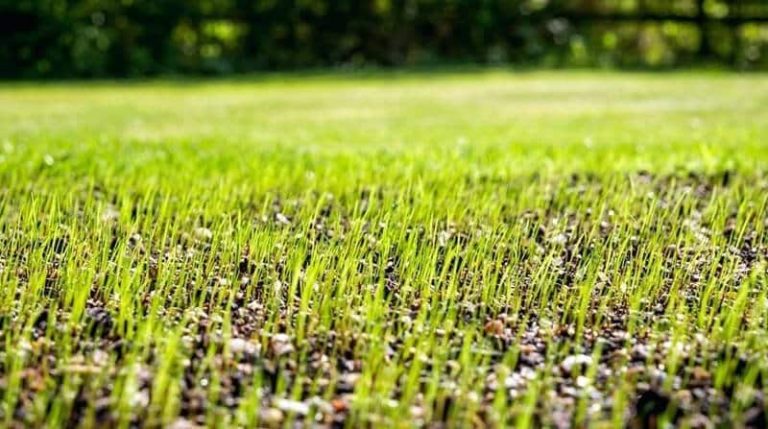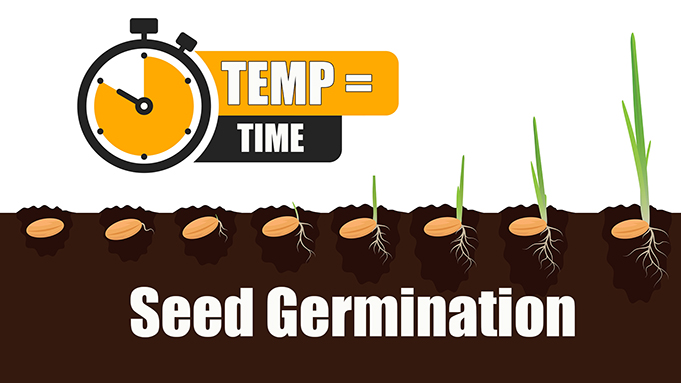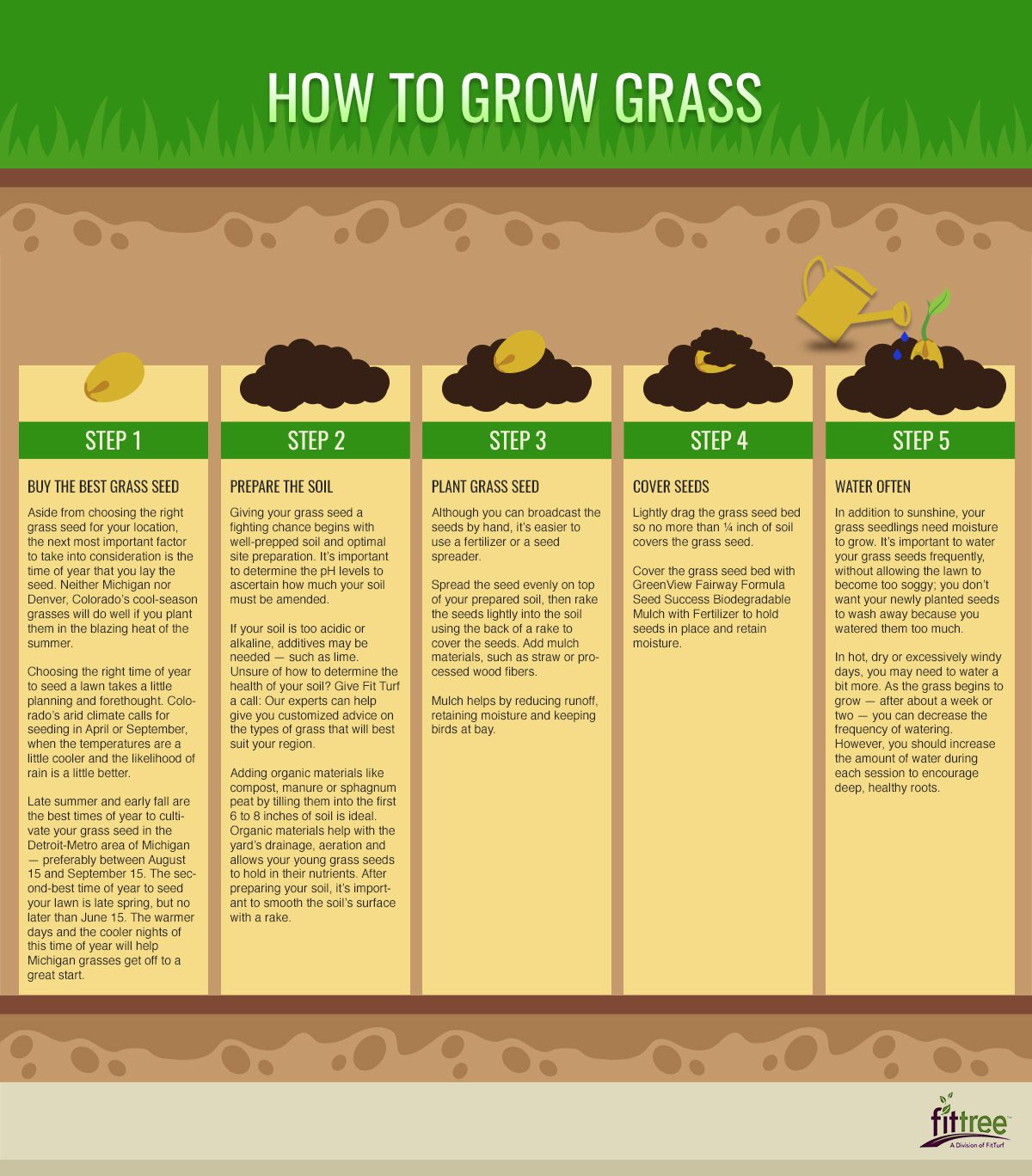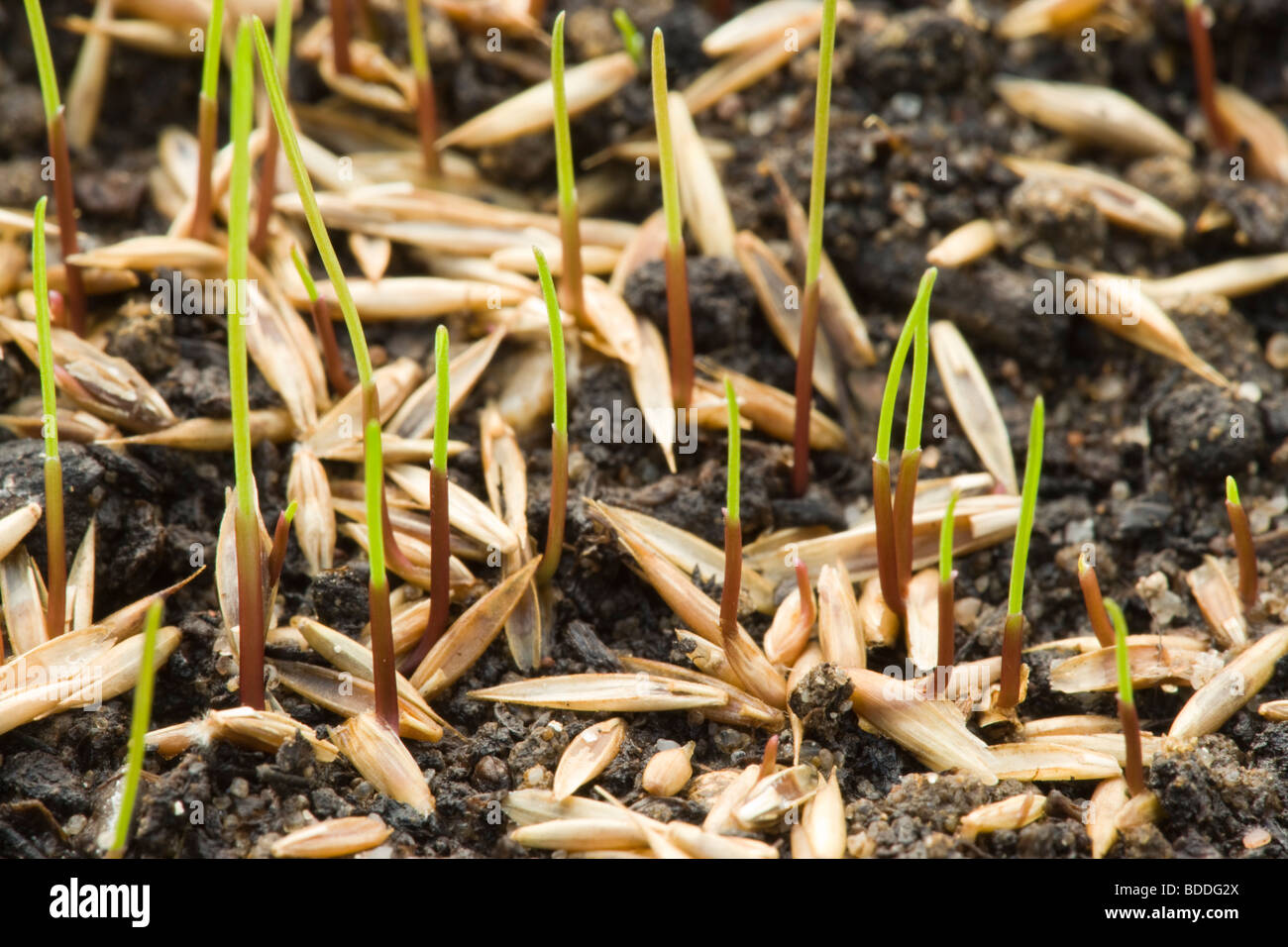The Germination Process: What to Expect
Grass seed germination is a critical step in establishing a healthy and thriving lawn. Understanding how long a grass seed takes to germinate is essential for providing optimal conditions for growth. The germination process is influenced by various factors, including soil temperature, moisture, and light. Soil temperature, in particular, plays a crucial role in germination, with different grass species requiring specific temperature ranges to germinate. For instance, cool-season grasses typically germinate at temperatures between 40°F and 75°F, while warm-season grasses germinate at temperatures above 75°F. By understanding these factors, you can create an ideal environment for your grass seeds to germinate, giving them the best start in life.
Factors Affecting Grass Seed Germination Time
Several factors influence the germination time of grass seeds, including seed type, soil quality, and environmental conditions. The type of grass seed, for instance, can significantly impact germination rates. Cool-season grasses, such as Kentucky bluegrass and perennial ryegrass, typically germinate faster than warm-season grasses, such as Bermudagrass and zoysiagrass. Soil quality also plays a crucial role, with seeds germinating faster in well-draining, fertile soils. Environmental conditions, including temperature, moisture, and light, also affect germination rates. For example, seeds germinate faster in temperatures between 65°F and 85°F, and slower in extreme temperatures. Understanding these factors is essential for providing optimal conditions for germination, as it can significantly impact how long a grass seed takes to germinate. By recognizing the specific needs of your grass seeds, you can create an ideal environment for germination, leading to a healthier and more robust lawn.
How to Optimize Grass Seed Germination
To create an ideal environment for grass seed germination, it’s essential to prepare the soil, use proper sowing techniques, and provide adequate post-sowing care. Start by preparing the soil by loosening it to a depth of 8-10 inches and removing any debris or weeds. Next, sow the seeds at the recommended rate and depth, and then rake the soil to ensure good contact between the seeds and soil. After sowing, keep the soil consistently moist during the germination period, which can range from 7-14 days depending on the type of grass and environmental conditions. Avoid overwatering, as this can lead to rot and poor germination. By following these tips, you can create an optimal environment for your grass seeds to germinate, which can significantly impact how long a grass seed takes to germinate. Additionally, maintaining a consistent soil temperature, providing adequate light, and controlling weeds can also help to promote healthy germination and establishment.
Grass Seed Germination Times: A General Guide
Understanding the average germination times for different types of grass seeds is crucial for successful lawn establishment. Cool-season grasses, such as Kentucky bluegrass and perennial ryegrass, typically germinate within 7-14 days, while warm-season grasses, like Bermudagrass and zoysiagrass, can take 14-21 days or more to germinate. Fine fescue, a popular choice for lawns, usually germinates within 10-14 days. It’s essential to note that these times can vary depending on factors such as soil temperature, moisture, and light. For example, a grass seed may germinate faster in ideal conditions, such as warm soil and adequate moisture, but slower in less favorable conditions. Knowing the average germination time for your specific grass type can help you plan and prepare for the germination process, ensuring you provide the optimal conditions for your seeds to thrive. By understanding how long a grass seed takes to germinate, you can better anticipate and address any potential issues that may arise during the germination process.
Understanding the Role of Soil Temperature
Soil temperature plays a crucial role in grass seed germination, as it directly affects the metabolic processes that occur during germination. Different grass species have optimal soil temperature ranges for germination, and understanding these ranges is essential for successful lawn establishment. For example, cool-season grasses like Kentucky bluegrass and perennial ryegrass germinate best in soil temperatures between 40°F and 75°F (4°C and 24°C), while warm-season grasses like Bermudagrass and zoysiagrass require temperatures between 65°F and 90°F (18°C and 32°C). Fine fescue, a popular choice for lawns, germinates optimally in soil temperatures between 50°F and 70°F (10°C and 21°C). To measure soil temperature, use a soil thermometer or take a temperature reading at a depth of 2-3 inches. By understanding the optimal soil temperature range for your specific grass type and ensuring that the soil is at the right temperature, you can create an ideal environment for germination, which can significantly impact how long a grass seed takes to germinate. By providing optimal soil temperatures, you can give your grass seeds the best possible start, leading to a healthy and thriving lawn.
Common Mistakes to Avoid During Germination
When it comes to grass seed germination, even the smallest mistakes can hinder the process and lead to disappointing results. One of the most common mistakes is overwatering, which can cause the seeds to rot before they have a chance to germinate. On the other hand, underwatering can also slow down germination, as seeds need consistent moisture to break dormancy. Inadequate soil preparation is another mistake to avoid, as compacted or poorly aerated soil can prevent seeds from germinating. Additionally, sowing seeds too deeply or at the wrong time of year can also negatively impact germination rates. To overcome these mistakes, it’s essential to follow proper sowing techniques, maintain optimal soil moisture, and prepare the soil properly before sowing. By avoiding these common mistakes, you can create an ideal environment for your grass seeds to germinate, which can significantly impact how long a grass seed takes to germinate. By taking the time to understand the germination process and avoiding common mistakes, you can give your grass seeds the best possible start, leading to a healthy and thriving lawn.
Monitoring Grass Seed Germination: What to Look For
Once you’ve sown your grass seeds, it’s essential to monitor their progress to ensure successful germination. One of the first signs of germination is sprouting, where the seedling emerges from the soil. This can take anywhere from 7 to 21 days, depending on the type of grass and environmental conditions. Another key indicator of successful germination is root development, where the seedling’s roots begin to grow and establish themselves in the soil. To monitor germination, keep the soil consistently moist and check for signs of sprouting and root development. It’s also crucial to be patient during the germination process, as it can take time for the seeds to break dormancy and begin growing. By understanding what to look for during germination and providing optimal conditions, you can increase the chances of successful lawn establishment and answer the question of how long does a grass seed take to germinate. Remember, every grass species is different, and germination times can vary significantly. By monitoring germination and providing the right conditions, you can give your grass seeds the best possible start and enjoy a lush, thriving lawn.
Conclusion: Giving Your Grass Seeds the Best Start
In conclusion, understanding the intricacies of grass seed germination is crucial for successful lawn establishment. By recognizing the factors that influence germination, optimizing soil conditions, and avoiding common mistakes, you can significantly improve the chances of your grass seeds germinating successfully. Remember, every grass species is unique, and understanding how long does a grass seed take to germinate can help you tailor your approach to meet their specific needs. By following the tips and advice outlined in this article, you can create an ideal environment for your grass seeds to thrive, leading to a lush, healthy lawn that will provide years of enjoyment. Whether you’re a seasoned gardener or a novice, grasping the concepts of grass seed germination can make all the difference in achieving your lawn goals. So, take the time to understand the process, and give your grass seeds the best possible start.









